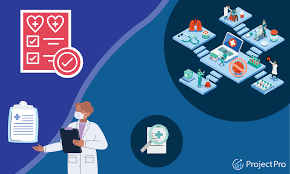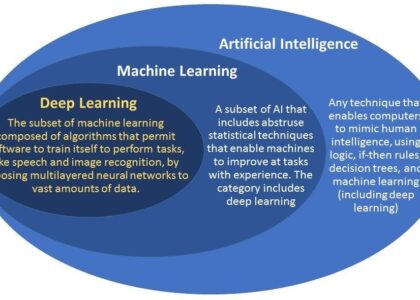Health Data Analytics: Revolutionising Healthcare
In today’s digital age, the healthcare industry is undergoing a transformation with the help of health data analytics. By harnessing the power of data, healthcare providers are able to make more informed decisions, improve patient outcomes, and enhance overall efficiency.
The Role of Health Data Analytics
Health data analytics involves collecting, analysing, and interpreting vast amounts of health-related data to gain valuable insights. This data can come from various sources such as electronic health records (EHRs), medical imaging, wearable devices, and genetic information.
By applying advanced analytics techniques to this data, healthcare professionals can identify trends, predict outcomes, and personalise treatment plans for individual patients. This not only improves the quality of care but also helps in reducing costs and streamlining operations.
Benefits of Health Data Analytics
Enhanced Patient Care: Health data analytics allows healthcare providers to monitor patient health in real-time, identify potential issues early on, and intervene proactively. This leads to better treatment outcomes and improved patient satisfaction.
Predictive Modelling: By analysing historical patient data, healthcare organisations can develop predictive models to anticipate disease progression, identify high-risk patients, and prevent adverse events before they occur.
Operational Efficiency: Health data analytics helps in optimising resource allocation, reducing wait times, and improving workflow processes within healthcare facilities. This results in cost savings and a more efficient delivery of care.
The Future of Healthcare
As technology continues to advance, the potential for health data analytics in revolutionising healthcare is immense. With the integration of artificial intelligence (AI) and machine learning algorithms, we can expect even more accurate diagnoses, personalised treatments, and preventive care strategies.
In conclusion, health data analytics is reshaping the way healthcare is delivered by empowering providers with actionable insights derived from vast amounts of data. By leveraging this technology effectively, we can improve patient outcomes, enhance operational efficiency, and ultimately transform the future of healthcare for the better.
9 Essential Tips for Effective Health Data Analytics
- Ensure data privacy and security measures are in place to protect sensitive health information.
- Use advanced analytics tools and techniques to gain deeper insights from health data.
- Regularly clean and validate the data to ensure accuracy and reliability of analysis results.
- Collaborate with healthcare professionals to understand the context of the data and its implications.
- Implement data governance practices to maintain quality standards and compliance with regulations.
- Utilise machine learning algorithms for predictive modelling and identifying trends in health outcomes.
- Visualise data effectively through charts, graphs, and dashboards for easier interpretation by stakeholders.
- Stay updated on emerging trends and technologies in health data analytics for continuous improvement.
- Communicate findings clearly to decision-makers to drive informed strategies and interventions.
Ensure data privacy and security measures are in place to protect sensitive health information.
It is crucial to ensure that robust data privacy and security measures are in place when utilising health data analytics to safeguard sensitive health information. By implementing stringent protocols for data encryption, access control, and compliance with privacy regulations such as GDPR, healthcare organisations can maintain the confidentiality and integrity of patient data. Prioritising data security not only builds trust with patients but also mitigates the risk of potential data breaches, ensuring that sensitive health information remains protected throughout the analytics process.
Use advanced analytics tools and techniques to gain deeper insights from health data.
To maximise the benefits of health data analytics, it is essential to utilise advanced analytics tools and techniques. By harnessing the power of these sophisticated tools, healthcare professionals can delve deeper into health data, uncover hidden patterns, and extract valuable insights that can drive informed decision-making and improve patient outcomes. Advanced analytics capabilities enable healthcare providers to identify trends, predict outcomes, and personalise treatment plans with a level of precision that traditional methods cannot achieve. Embracing these tools allows for a more comprehensive understanding of health data, leading to enhanced care delivery and operational efficiency within healthcare organisations.
Regularly clean and validate the data to ensure accuracy and reliability of analysis results.
Regularly cleaning and validating the data is crucial in maintaining the accuracy and reliability of analysis results in health data analytics. By ensuring that the data is free from errors, inconsistencies, and duplicates, healthcare providers can make informed decisions based on trustworthy information. This process not only enhances the quality of patient care but also improves operational efficiency within healthcare organisations. Regular maintenance of data integrity is essential for deriving meaningful insights and driving positive outcomes in the ever-evolving landscape of healthcare analytics.
Collaborate with healthcare professionals to understand the context of the data and its implications.
Collaborating with healthcare professionals is essential when delving into the realm of health data analytics. By working closely with doctors, nurses, and other experts in the field, you can gain valuable insights into the context of the data and its real-world implications. Understanding the nuances of medical practices and patient care allows for a more accurate interpretation of the data, leading to informed decisions that can positively impact patient outcomes and drive improvements in healthcare delivery. This collaborative approach ensures that health data analytics is not just about numbers and statistics but is deeply rooted in the human aspect of healthcare, ultimately enhancing the quality of care provided to patients.
Implement data governance practices to maintain quality standards and compliance with regulations.
To ensure the accuracy and reliability of health data analytics, it is essential to implement robust data governance practices. By establishing clear guidelines for data collection, storage, and analysis, healthcare organisations can maintain high-quality standards and adhere to regulatory requirements. Data governance helps in safeguarding patient information, ensuring data integrity, and promoting transparency in decision-making processes. By prioritising data governance practices, healthcare providers can enhance the effectiveness of their analytics initiatives and build trust among patients and stakeholders.
Utilise machine learning algorithms for predictive modelling and identifying trends in health outcomes.
By utilising machine learning algorithms for predictive modelling and identifying trends in health outcomes, healthcare providers can harness the power of data to anticipate disease progression, identify high-risk patients, and implement preventive measures effectively. Machine learning enables the analysis of vast amounts of health data to uncover patterns and insights that may not be apparent through traditional methods. This proactive approach not only improves patient care by predicting potential health issues in advance but also enhances operational efficiency within healthcare organisations.
Visualise data effectively through charts, graphs, and dashboards for easier interpretation by stakeholders.
Visualising data effectively through charts, graphs, and dashboards is a crucial tip in health data analytics. By presenting complex healthcare information in a visual format, stakeholders can quickly grasp key insights and trends, making data interpretation easier and more impactful. Visual representations not only enhance understanding but also facilitate informed decision-making, enabling healthcare professionals to identify patterns, outliers, and correlations that may otherwise go unnoticed. This visual approach to data analysis plays a vital role in improving patient care, operational efficiency, and overall outcomes within the healthcare industry.
Stay updated on emerging trends and technologies in health data analytics for continuous improvement.
To maximise the benefits of health data analytics, it is crucial to stay informed about the latest trends and advancements in the field. By keeping abreast of emerging technologies and best practices in health data analytics, healthcare professionals can continuously improve their data analysis processes, enhance decision-making capabilities, and ultimately deliver more effective and efficient care to patients. Embracing innovation and staying updated on new developments in health data analytics ensures that healthcare providers remain at the forefront of leveraging data-driven insights to drive positive outcomes in patient care.
Communicate findings clearly to decision-makers to drive informed strategies and interventions.
Effective communication of findings in health data analytics is crucial to driving informed strategies and interventions within the healthcare sector. By presenting data insights clearly and concisely to decision-makers, healthcare professionals can make well-informed choices that lead to improved patient outcomes and operational efficiency. Clear communication of analytics findings ensures that decision-makers understand the implications of the data analysis, enabling them to implement targeted interventions and strategic initiatives that positively impact healthcare delivery and patient care.





